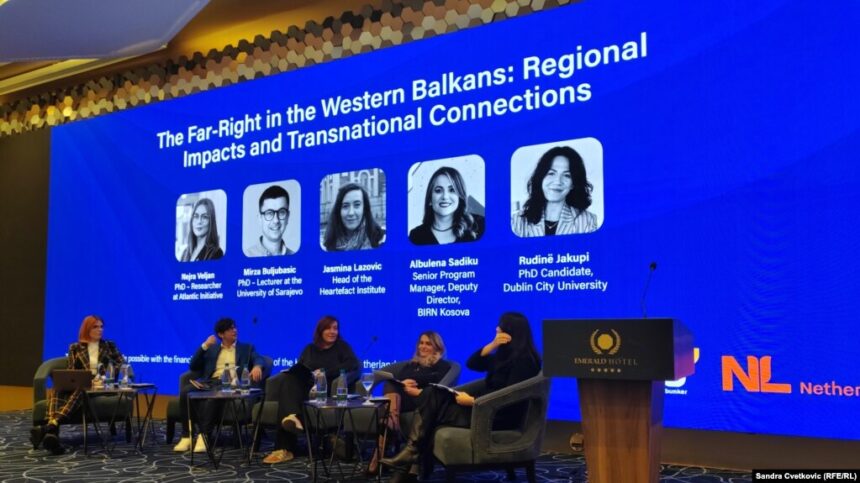A new report presented at a regional conference in Pristina highlights growing trends of ethnonationalism, anti-gender narratives, religious extremism, and anti-Serb rhetoric in Kosovo. The study, titled “Combating Extremism in Kosovo: Trends, Challenges, and Countermeasures”, was conducted by the NGO Sbunker with support from the Dutch Embassy in Kosovo.
Key Findings: Rising Ethnonationalism and Social Divisions
Researcher and report author Adelina Hasani emphasized that unresolved issues from the 1990s and the war in Kosovo have fueled ethnonationalist sentiments, particularly between the Albanian and Serbian communities. She noted that:
- Ethnonationalism is primarily visible in social media discourse and public rhetoric.
- Political narratives continue to shape public opinion, contributing to societal divisions.
- The lack of transitional justice has deepened historical grievances.
While discussions were conducted in several municipalities across Kosovo, they did not take place in the Serb-majority northern municipalities due to political tensions. The report also highlighted how disinformation, often linked to Russian influence through Serbian media, exacerbates divisions in these areas.
Rise of Anti-Gender Narratives and Religious Extremism
The study also identified an increase in anti-gender narratives, particularly targeting the LGBTQ+ community and abortion rights. These narratives are often framed as protecting “traditional family values” and have gained traction both in political discourse and on social media.
Additionally, while religious extremism in Kosovo peaked in 2014, the report suggests that it remains present, primarily within family networks. Hasani warned that religious extremist groups continue to portray democracy as corrupt and seek to present themselves as an alternative.
Recommendations for Addressing Extremism
The study proposes several measures to counter extremism, including:
- Expanding socio-cultural programs for youth.
- Implementing strategies to reduce online extremism.
- Addressing transitional justice issues and historical narratives.
A new online platform has also been launched as part of the project, providing practical tools for educators, community leaders, and policymakers to combat extremism at an early stage.







